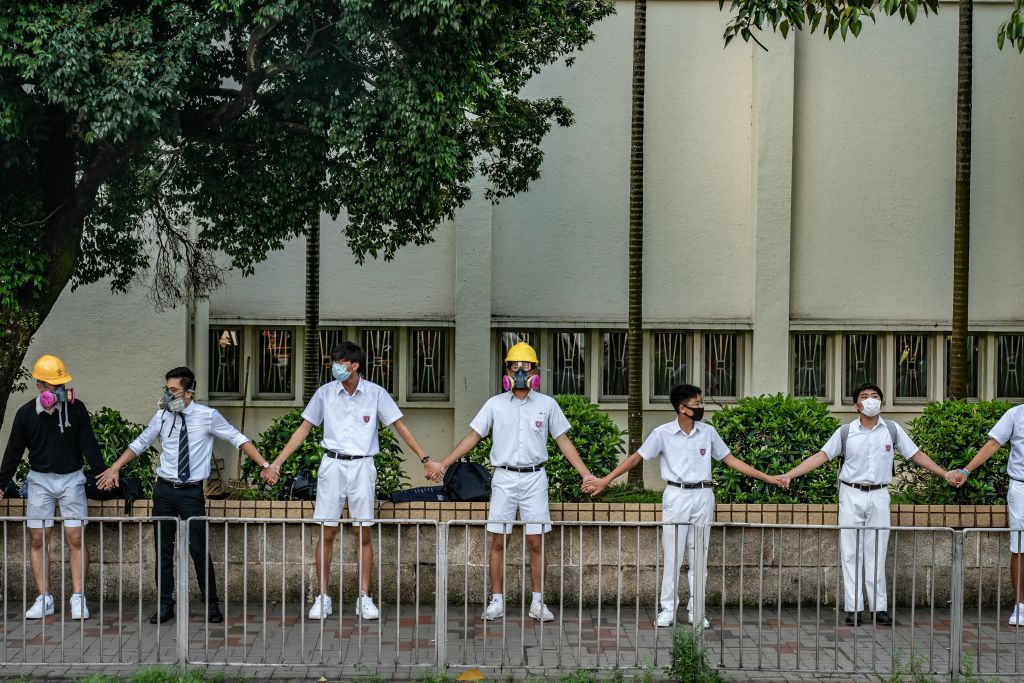ASPI suggests

The world
It’s been a busy week for US President Donald Trump. He declared the peace negotiations with the Taliban ‘dead’ and said he would hit them ‘harder than they have ever been hit before’. While there has been much discussion since about both the US and Taliban perspectives, Foreign Policy provides an interesting take on how this situation benefits Russia.
Trump also fired national security adviser John Bolton … well, it’s not quite clear if Bolton resigned or was fired, but regardless, the president is now on the hunt for his fourth national security adviser since taking office. This article from NPR analyses the hirings, firings and resignations of Trump’s White House team so far and offers an illuminating summary of the state of the administration. Bolton has long played a controversial role in US foreign policy, earning a reputation as Washington’s most hawkish figure. The New Yorker has published a piece analysing the effect of his exit, and ASPI Executive Director Peter Jennings broke down this latest episode in Washington politics and what it might mean for Prime Minister Scott Morrison’s upcoming state visit.
As defence forces around the globe move towards weaponised artificial intelligence, the risks, and advantages, are becoming increasingly evident. The Strategy Bridge runs through two hypothetical scenarios that highlight the pressures and challenges presented by ‘killer robots’ for US national security leaders and the ethical dilemmas of AI. This takes us back to Marcus Hellyer’s Strategist piece examining the ethical issues of AI facing the Australian Defence Force. Meanwhile, Wired discusses a company that’s found a way to use AI to complement the work of cybersecurity analysts by not only detecting threats but investigating them too. The Economist goes into more detail about how AI is changing all aspects of conflict in every domain.
Is the aircraft carrier obsolete? With modern weapons systems, large surface vessels are becoming increasingly vulnerable. However, as the UK’s HMS Queen Elizabeth continues its sea trials ahead of its first operational deployment in 2021, the International Institute for Strategic Studies has released a report highlighting the importance of aircraft carriers to ‘reassure allies, deter potential opponents and shape the behaviour of regional actors’. See Forbes for how US aircraft carriers are the most cost-effective way of containing the threats posed by China’s military; with the new Gerald R. Ford–class carriers costing around US$13 billion each, that’s a big statement. Look back at this National Interest piece which argues against aircraft carriers in the age of hypersonic weapons and anti-ship ballistic missiles.
Protesters in Hong Kong are planning more rallies this weekend to achieve their four remaining demands after the successful withdrawal of the extradition bill. The ABC has published an article that includes an interactive map of Hong Kong showing how the protests have unfolded and analyses Hong Kong’s place as a city torn between mainland China and its past as a British outpost.
When the first season of Star Trek aired in 1966, life beyond earth was a thing of great imagination. Now, though, scientists may be one step closer to finding extraterrestrial life. The discovery of water in the atmosphere of K2-18b, a planet 110 light years away in the constellation of Leo, has the space community excited. See Time for details on the discovery of the snappily named planet and its significance. To infinity, and beyond!
Tech geek
Sydney-based company Saber Astronautics is participating in a joint exercise with the US military and 20 other companies to test the combat-readiness of US space forces. The exercise is designed to allow government, military and commercial participants to track large numbers of objects in low-earth orbit, in a mission known as space situational awareness. If you want a look at what’s up there in real time, go to ComSpOC’s ‘SpaceBook’ interactive satellite map.
Staying in orbit, the US Air Force Space Command (@AFSpace) has released a major new report which focuses on military power in space in 2060 and considers the implications of rapid commercialisation of the moon and other near-earth objects for US military strategy.
The Defence and Security Equipment International arms expo is underway in London. News out of the show is that the Royal Air Force’s Tempest fighter program is accelerating with the addition of Saab to the project.
The US Army is promoting a ‘renaissance of electronic warfare and cyber’ in preparation for potential major-power war and in recognition of a need for interoperable systems.
Finally, the US Air Force’s B-1B Lancer bombers may be reconfigured to carry hypersonic weapons. Now, if they could only get them flying!
This week in history
It has been 18 years since the September 11 terrorist attacks on the US that killed 2,977 people. Read this heart-wrenching story by Ellen Bakalian, who lost her husband in the attacks and had to raise their two young daughters alone, and this piece in Foreign Policy for a deeper look at the facts.
Multimedia
Robert Mugabe, the founder and first ruler of Zimbabwe, died last week at age 95. He leaves behind a conflicted legacy: liberator or tyrant? Al Jazeera’s Inside Story investigates Mugabe’s life and Zimbabwe’s journey to emerge from his shadow. [24:50]
See BuzzFeed for a collection of photos taken of first responders in action in the wake of the 9/11 attack.
Podcasts
The Modern War Institute sat down with Lieutenant General Stephen Fogarty, commander of US Army Cyber Command, to discuss the future of cyber conflict and the nuances of operation in the cyber domain. [38:26]
Well worth a listen is the Swedish Institute of International Affairs’ seminar on international nuclear arms control and the fear of a return to the nuclear competition of the Cold War. [1:28.01]
Events
Melbourne, 16 September, 6.00–8.30 pm, University of Melbourne: ‘Arresting legacies of the Berlin Wall’. Register here.
Canberra, 20 September, 8.50 am–5.00 pm, Australian National University: ‘ANU Korea update 2019’. Register here.
